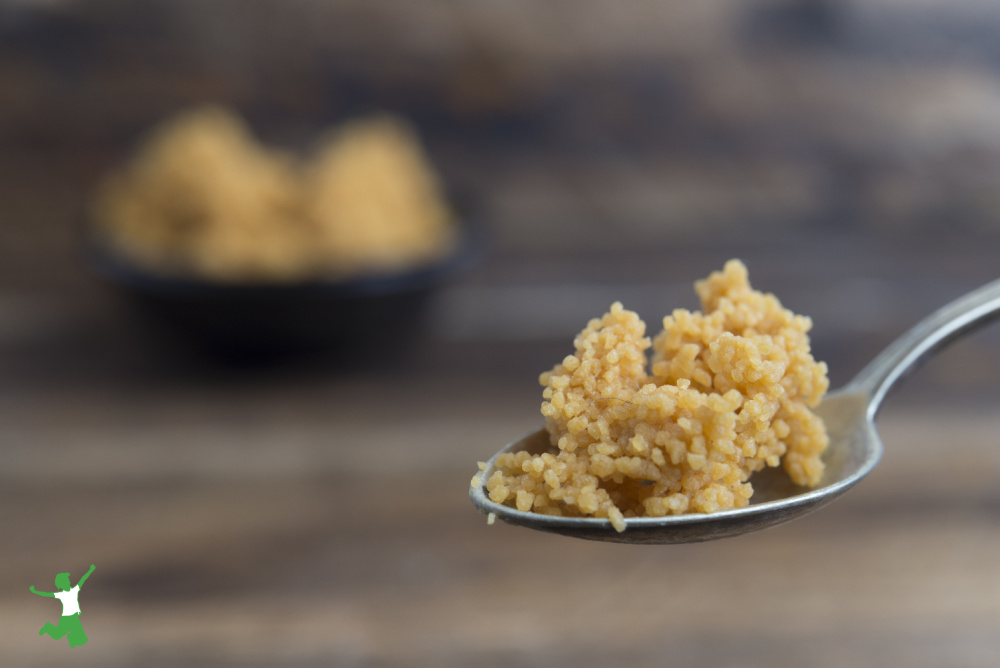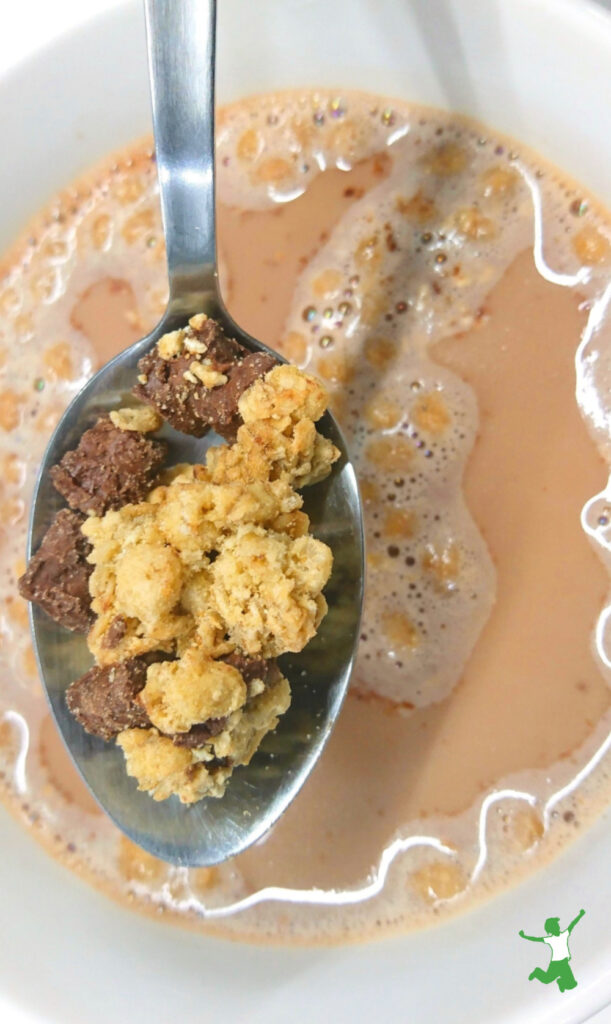The balanced analysis of the additive soy lecithin, a ubiquitous food ingredient even in organic foods. Discussion on when to avoid it, including supplements, and when it is harmless with little need for concern.

If you are an avid label reader like I am, you have surely noticed that the additive soy lecithin is listed in a wide variety of packaged and processed foods. Even products labeled 100% organic frequently contain it.
Soy, commonly called “soya” outside the United States, is one of the most common allergens permeating the world’s food supply.
It is included in the “Big 8” group of major allergenic foods.
The other seven allergens are milk, eggs, fish, shellfish, tree nuts, peanuts, and, of course, wheat.
Allergic reactions to soy range from mild to life-threatening anaphylaxis. The good news is that research has shown that most children allergic to soy will outgrow it by age 10.
The lack of a soy allergy, however, does not mean that soy should be consumed regularly.
Numerous scientific studies warn about the negative hormonal and digestive effects of unfermented soy in the diet.
Note that fermented soy like miso, tempeh, and natto are generally safe if nonGMO and consumed only by those without existing thyroid issues.
What is Soy Lecithin?
But what about soy lecithin?
Lecithin, after all, is a natural and necessary emulsifying substance found in the cells of all living organisms.
It is found in many whole foods such as cabbage, cauliflower, chickpeas, nuts, seeds, and eggs among many others.
When this seemingly innocuous additive is listed on a food label, it is usually one of the very last ingredients. This means that minute amounts are present.
Does a tiny amount of lecithin extracted from soy and added to food as an emulsifier pose a risk to health? It certainly doesn’t compare to exposure from say, a soy milk latte from Starbucks, right?
Could this issue be overblown in the majority of cases?
Soybean Lecithin Manufacturing
To get to the crux of this issue, it is first necessary to understand how soy lecithin is manufactured.
Dr. Kaayla Daniel provides an in-depth analysis that the industry would prefer you not know about in her book The Whole Soy Story.
Dr. Daniel’s research uncovered that soybean lecithin, aka soy lecithin, is actually a waste product from the manufacturing process that produces soy oil. It is extracted from the sludge that is left after the soy oil undergoes a degumming process. (1)
Uses
Soy lecithin has been around since early in the last century when scientists uncovered the many ways to use it after a patented process producing it was developed by companies in Germany.
Today, manufacturers most commonly use it as a food emulsifier to keep water and fats from separating.
Soy lecithin also extends product shelf life thereby increasing the profitability of the wide variety of processed foods that contain it, even infant formula!
Toxic Residues
While soy lecithin derived from soy oil sludge is not necessarily a problem, it is what this waste product contains that gives the most reason for concern.
The extraction of the soy oil from the bean requires the use of toxic solvents like hexane similar to the chemical sprays used to extract every drop of orange juice from conventional oranges.
In addition, commercial soy these days is almost always genetically modified meaning pesticide residue galore.
Adding insult to injury, the soy lecithin which no doubt contains toxic solvent and pesticide residues is bleached to transform the color from a dirty brownish hue to a light yellow.
Allergic Reactions
While the manufacturing process of soy lecithin theoretically removes all soy proteins leaving a product that is hypoallergenic, the reality is something else.
Even tiny amounts of soy protein residue in soy lecithin are a danger to those with soy allergies.
Dr. Daniel’s research identified that one of the three components of soy protein, the Kunitz trypsin inhibitor, capable of triggering a severe reaction in the tiniest of amounts, has been found in soy lecithin via testing. (2)
As a result, if a soy allergy is present, it is best to avoid soy lecithin. Look for products that use an alternative emulsifier. The best choice is sunflower lecithin.
Be sure to double-check the ingredients on your supplements and personal care items too as soy lecithin is widely used in these items as well.
In cosmetics, for example, the addition of lecithin allows the active ingredients to penetrate the skin barrier.
Organic Soy Lecithin
What about those without a soy allergy?
Is avoiding all products containing soy lecithin really necessary as should be done without exception for soy protein and soy oil?
Based on the typical manufacturing methods for this additive, the answer is yes.
It is wise to avoid commercial soy lecithin due to the dangerous solvents and GMO soy that are the inputs to produce it. (3)
However, organic soy lecithin is another matter.
Organic soy is nonGMO is not be extracted using toxic chemicals.
Therefore, small amounts occasionally consumed in processed foods would pose little risk to health.
Isoflavones
For those avoiding soy due to hormonal issues such as low thyroid or breast cancer, the good news is that soy lecithin won’t contribute to the problem.
Contrary to popular belief, the health dangers of soy oil are not primarily from isoflavones. These substances are also called phytoestrogens…plant-derived compounds with estrogenic activity.
Therefore, soy lecithin derived from the sludge of soy oil manufacturing would also be unlikely to contain these hormone-disrupting substances.
Lecithin as a Supplement
Lecithin supplements available in pills, powder, and liquid remain popular for the health-conscious. But, are they really necessary or even a good idea?
According to the Weston A. Price Foundation, lecithin products are marketed for everything from improving cardiovascular health to reversing liver damage. It is even touted as valuable for improving brain function and memory. (4)
The marketing of lecithin as a supplement is typically due to a misguided fear of fat within the context of a low-fat, low cholesterol diet.
Why use a lecithin supplement, particularly one derived from pesticide and hexane-tainted sludge from GMO soy oil to indulge fatphobia?
It is best to obtain lecithin via a traditional diet containing ample quantities of Nature’s Perfect Food…eggs.
And, make sure to eat those yolks and never just the egg whites. Rich, nutritious, brain-building egg yolks contain 30% lecithin!

(1, 2) The Whole Soy Story
(3) From Sludge to Profit
(4) Questions about Lecithin
More Information
Estrogenic Foods Like Soy Trigger Precancerous Breasts
170 Scientific Reasons to Eliminate the Soy from Your Diet
Organic Soy Formula is Dangerous for Babies
Healthy Soy Sauce: The Good, the Bad and the Very Ugly








Would organic soy lecithin be ok in a vitamin/mineral supplement that’s taken everyday? Thanks!
As stated in the article, lecithin is an unnecessary supplement. Eat your healthy fats esecially eggs (including the yolk) and you are fine.
thanks sarah yes so many soy- and corn-derived ingredients in processed foods.
i have an area i am interested in: the effect of soy and corn feed on meat, dairy and eggs? i realise that the fat profile changes alot when animals are not pastured. many free-range chickens where I am are fed corn.
What if someone is allergic to eggs? What is a good source for lecithin in that case?
Sunflower lecithin.
My son and I were just looking this up today. I’m so happy you wrote about this. Thank you so much. He is suffering from gynecomastia and we are trying desperately to get to the bottom of it.
Hi Sarah, THANKS FOR all your great health tips.
Is SUNFLOWER LECITHIN OK TO USE?
Also, what about the external use of herbs for breast enlargement? Is that safe?
I hear about a cream on Dr. Oz, and wondered.
Great post. I have been avoiding it even in organic products (I do not have a sensitivity). Good to know it’s not really a problem in those circumstances.
I live in a a rural area and pay for broadband by the minute. When you feature ads that play automatically and can’t be shut off, I have to close the link. So aggravating. Is this necessary, especially since it’s advertising pharmaceuticals?
My ad manager is working to shut those ads down. So sorry for the inconvenience. I am actually opted out of ALL video ads, but these sneaky advertisers get them through the filters somehow.
Love your blog Sarah as your perspective seems very much in line with mine. Thank you thank you thank you for all the research and reading you do. Now that I have 2 little ones my time to look into things is greatly reduced :/ And I’m really starting to trust your voice.
My naturopath recommended lecithin to me while breast feeding as I was having issues with clogged ducts. It seemed to work well. Do you have thoughts on this?
I personally would just eat a lot of egg yolks …makes for some very rich breastmilk and a happy baby too who doesn’t nurse too frequently and sleeps like a log 🙂
Do you know of a brand of carob chips that doesn’t contain soy lecithin?
I don’t … you may have to make them yourself and fortunately they are very easy to make.